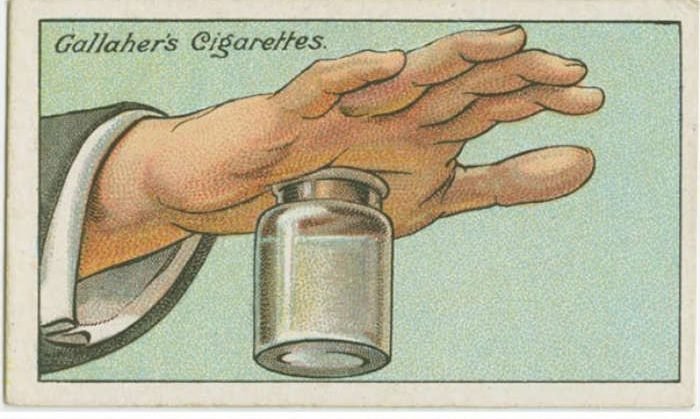
“A splinter embedded in the hand is often very painful to extract. A good way to accomplish this is to fill a wide-mouthed bottle with hot water nearly to the brim, and press affected part of the hand tightly against mouth of bottle. The suction will pull down the flesh, and steam will soon draw out the splinter.“
2. How to Cut New Bread into Thin Slices
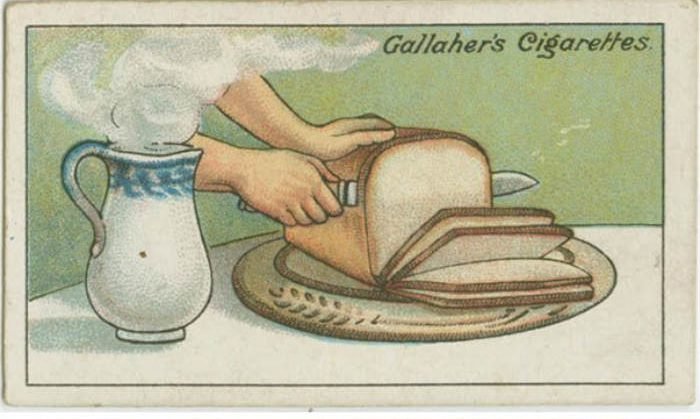
“The difficulty of cutting new bread into thin slices can readily be overcome by the following expedient. Plunge the bread knife into hot water and when thoroughly hot wipe quickly. It will be found that the heated knife will cut soft, yielding new bread into the thinnest slices.“
3. How to Revive Cut Flowers
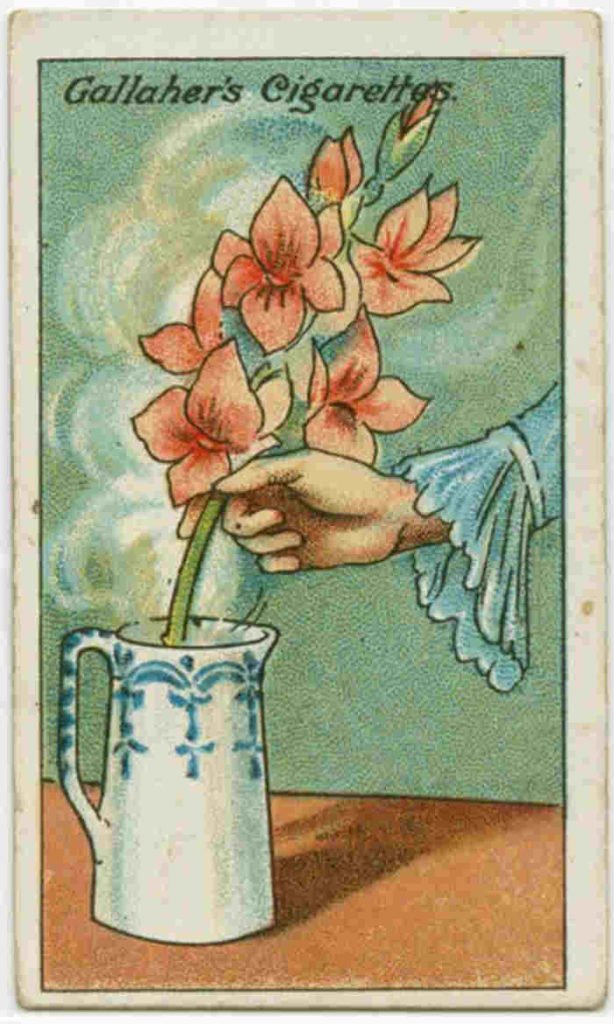
“To revive choice blooms that have faded during transit, plunge the stems into hot water, and allow them to remain until the water has cooled. By that time the flowers will have revived. The ends of the stems should then be cut off and the blossoms placed in cold water in the usual way.“
4. How to Make a Fire Extinguisher
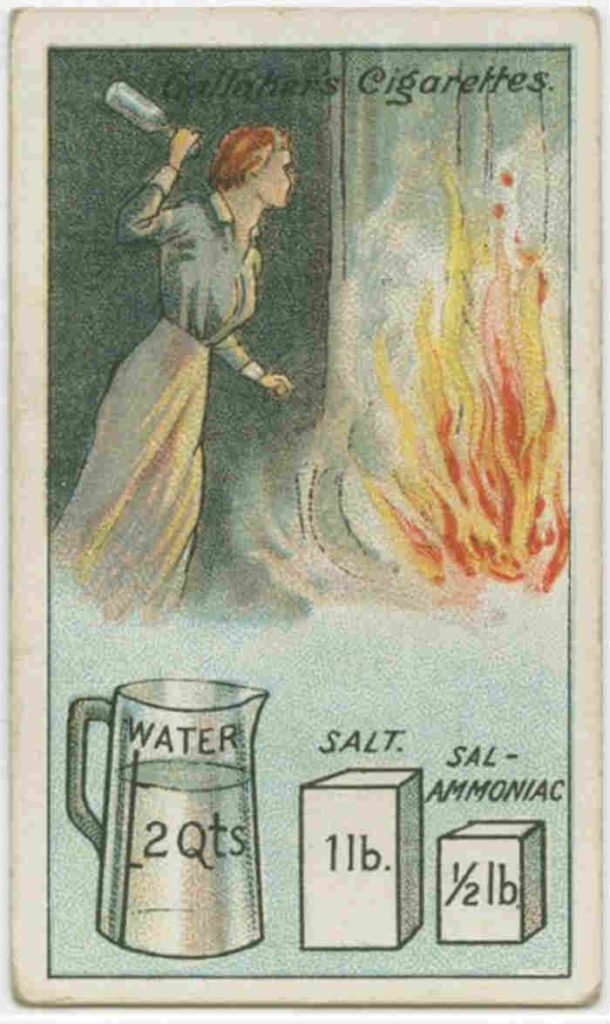
“Dissolve one pound of salt and half a pound of sal-ammoniac in two quarts of water and bottle the liquor in thin glass bottles holding about a quart each. Should a fire break out, dash one or more of the bottles into the flames, and any serious outbreak will probably be averted.”
5. How to Test Butter
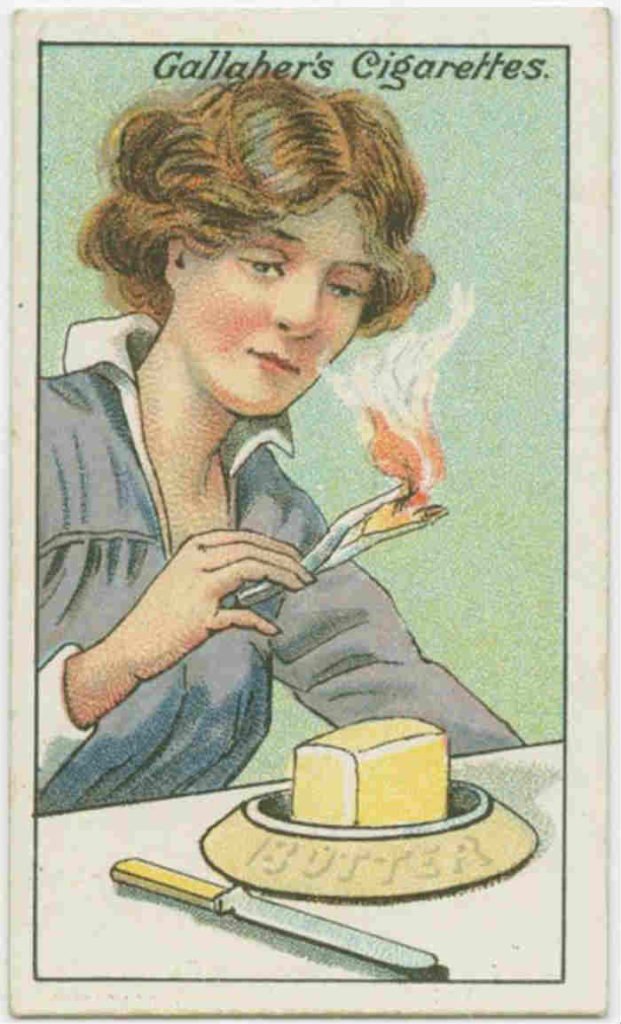 #“A good way of testing butter is shown in the picture. Rub a little of the suspected compound upon a piece of paper and set the paper alight. If it is pure butter, the odor will be daintly and agreeable, while the presence of Margarine is made known by an unpleasant tallowy smell.”
#“A good way of testing butter is shown in the picture. Rub a little of the suspected compound upon a piece of paper and set the paper alight. If it is pure butter, the odor will be daintly and agreeable, while the presence of Margarine is made known by an unpleasant tallowy smell.”
6. How to Judge the Weather
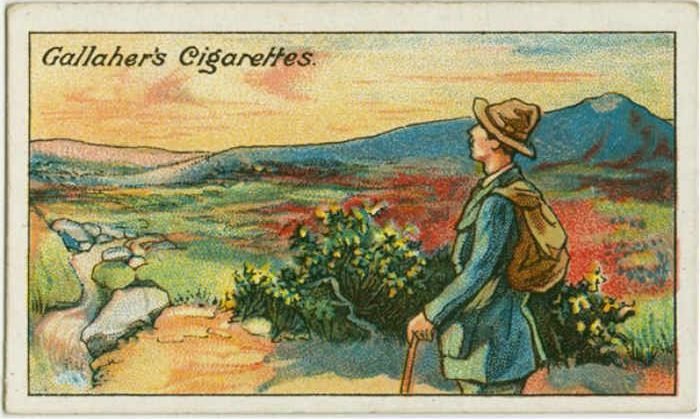
“The traveler, setting off in the early morning, will find a fairly sure guide as to the weather he is likely to encounter by watching a very small distant cloud. If the cloud grows gradually larger, then unsettled, rainy weather will probably come. But if the cloud decreases in size, the day should be a fine one.”
7. How to Treat Sprains
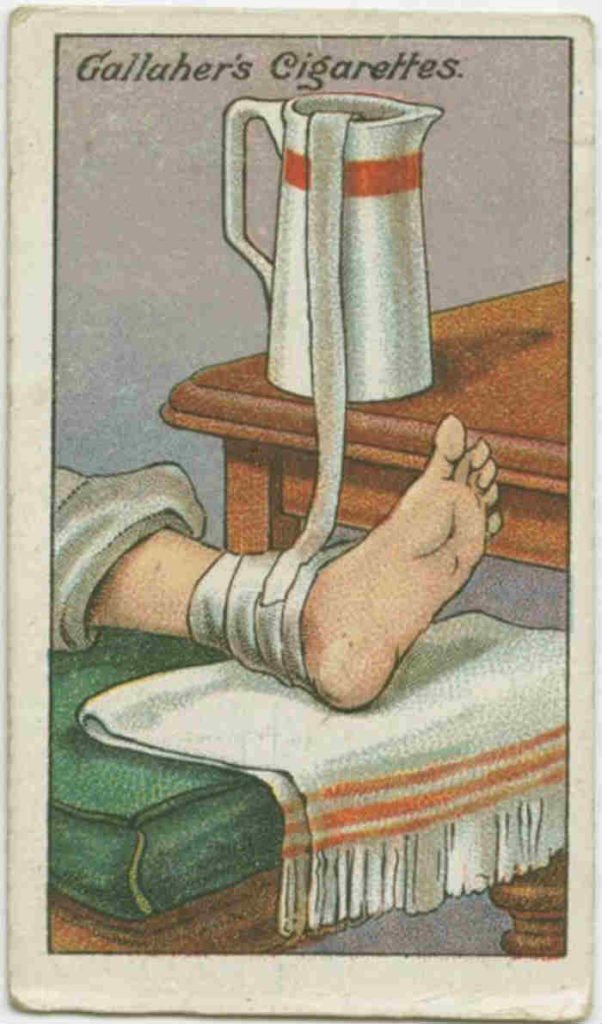
“Elevate the injured joint and wrap in cloths wrung out in cold water. The picture shows how to keep the cloths constantly wet without having to change them. A jug of water placed higher than injured limb, and a strip of linen with one end in the jug and the other end resting upon the wrapping of sprained joint, is all that is necessary. The water will pass from jug to compress by way of linen strip. Give a rubbing with oil or liniment as sprain gets better.“
8. How to Light a Match in the Wind
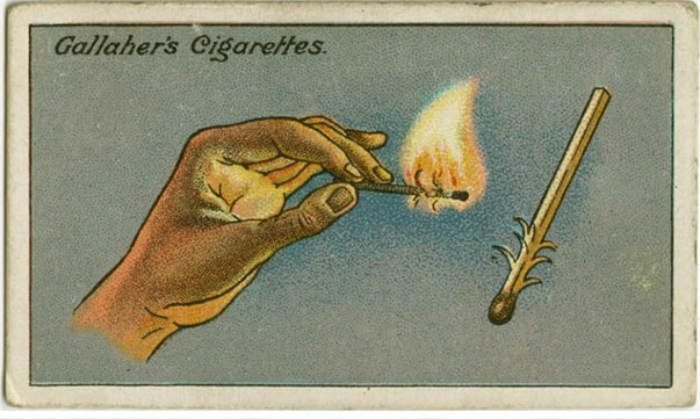
“The familiar difficulty of lighting a match in wind can be to a great extent overcome if thin shavings are first cut on the match towards its striking end, as shown in the picture. On lighting the match, the curled strips catch fire at once; the flame is stronger, and has a better chance.”
9. How to Clean Oil Paintings
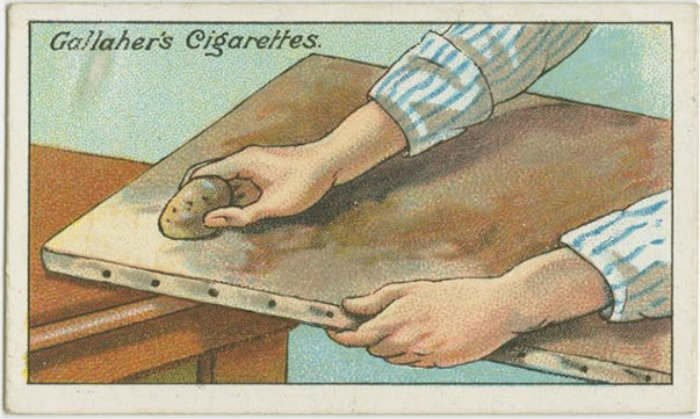
“The pictures show a very effective method. Painting should first be well dusted and then rubbed gently with the flat surface of cut raw potato, the lather being wiped away with a soft rag. The dirty part of potato must constantly be pared off in order to keep clean the surface applied to the picture. Finish off with a rub of pine linseed oil.“
10. How to Boil Cracked Eggs
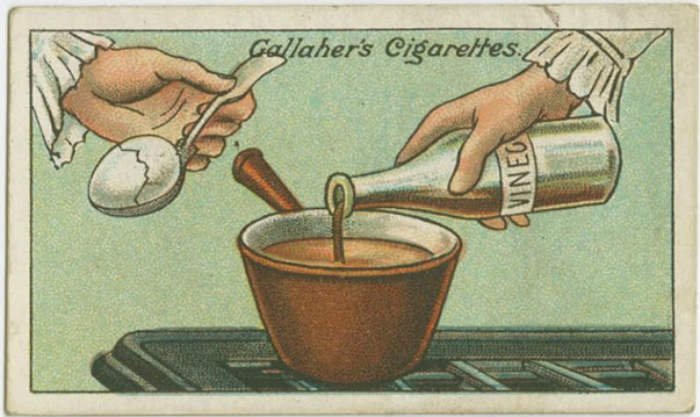
“To boil cracked eggs as satisfactorily as though they were undamaged, a little vinegar should be added to the water. If this is done, it will be found that none of the contents will boil out.”
11. How to Preserve Valuable Vases
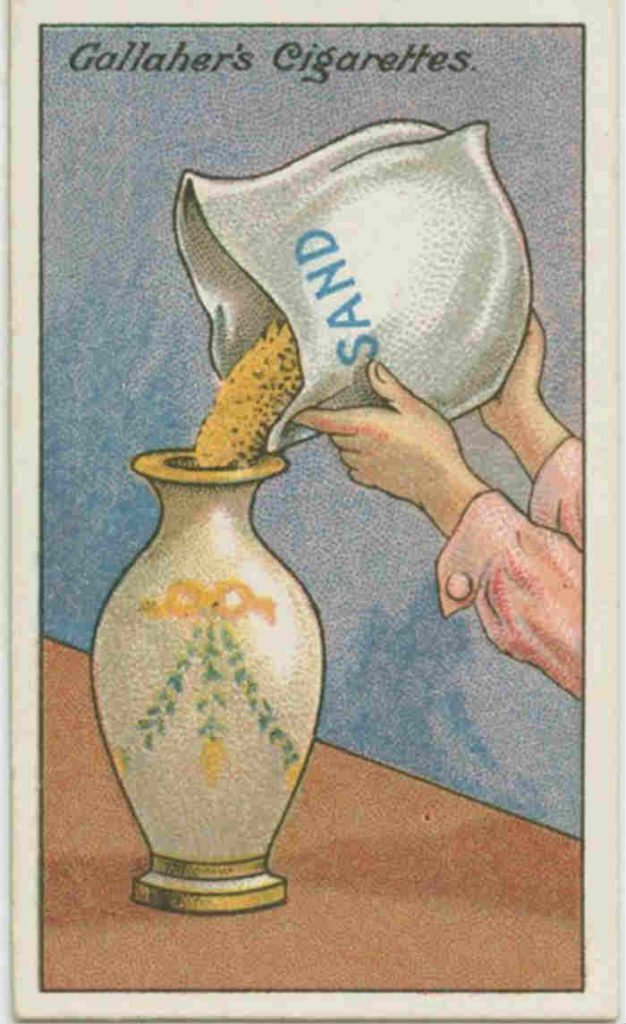
“If the following precaution is taken, the danger of knocking over a valuable vase will not be so great. Partly fill the vase with sand, which, acting as a weight, keeps it upright and firm on its base. This idea is particularly useful in the case of vases which are inclined to be top heavy, owing to their having small bases.“
12. How to Take Ink Stains Out of a Handkerchief#
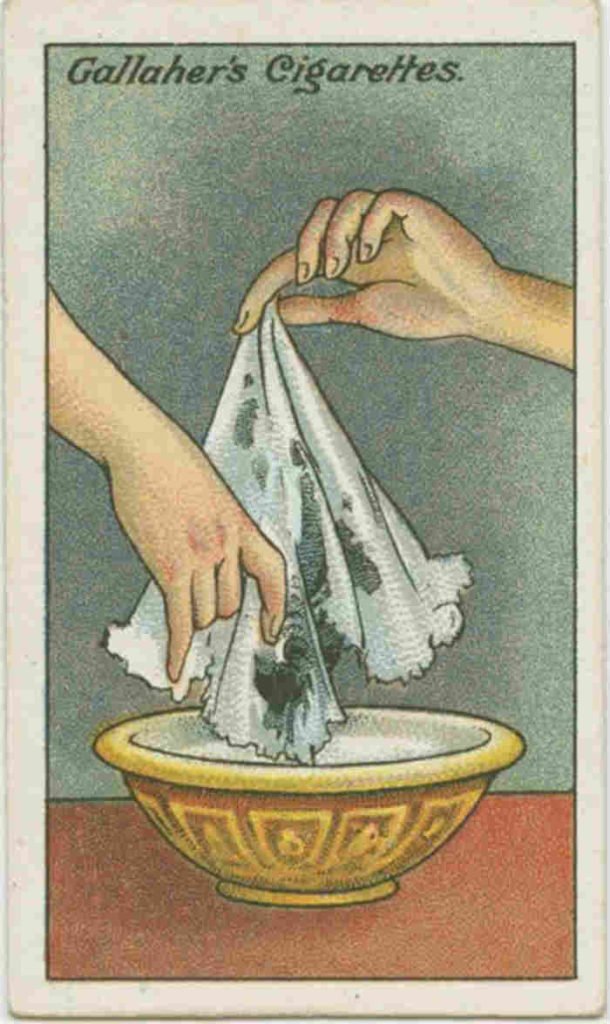
“A fine linen handkerchief which has had the misfortune to become stained with ink can be restored to its original spotlessness. When the accident occurs, the handkerchief should at once be plunged into milk. After soaking for some time it will be found that the ink stains have disappeared.”
13. How to Clean Bottles
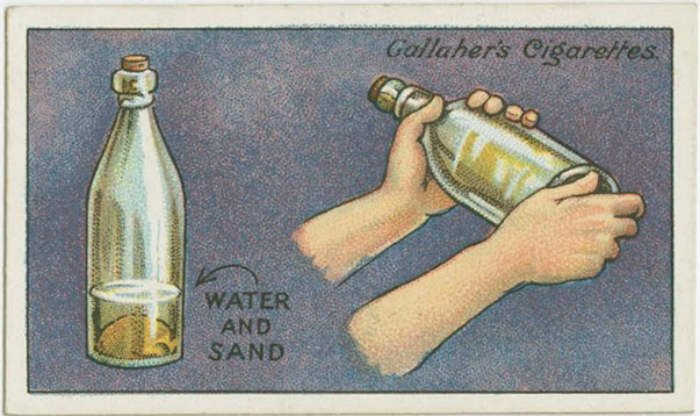
“To clean the interior of bottles, a little sand and water should be well shaken about inside them. This will have the effect of cleansing every part, and the bottles can then be washed out and drained.“
14. How to Increase Lung Power
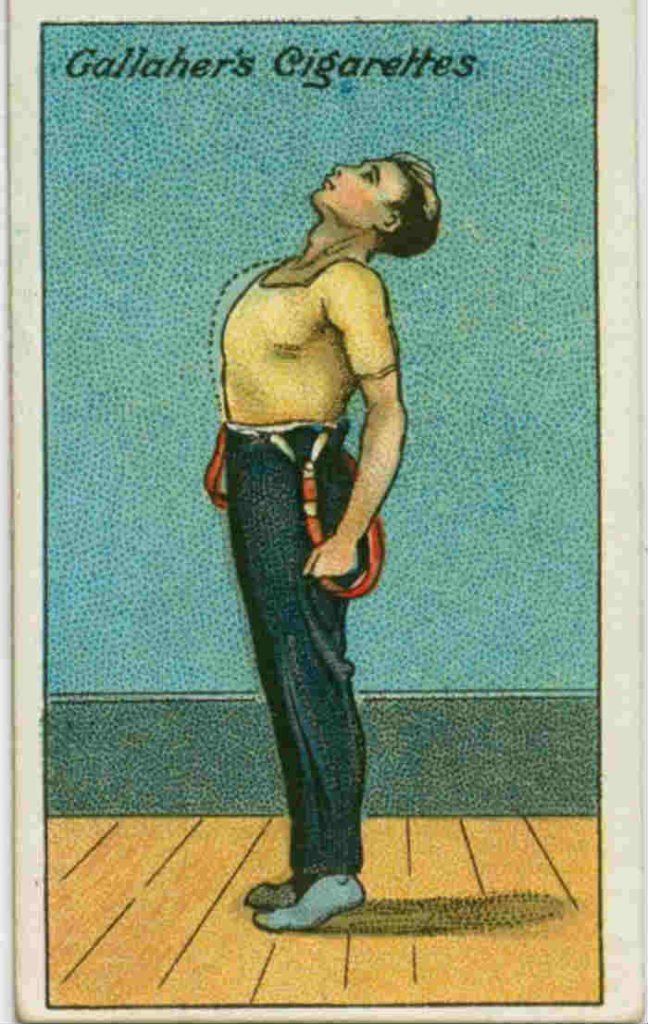
“Stand erect on the balls of the feet, and with the head held well back. Then inhale deeply until the lungs are fully inflated, gradually exhale, allowing the chest to sink first, followed by the lungs. Repeat the exercise several times both morning and evening.”
15. How to Clean Real Lace
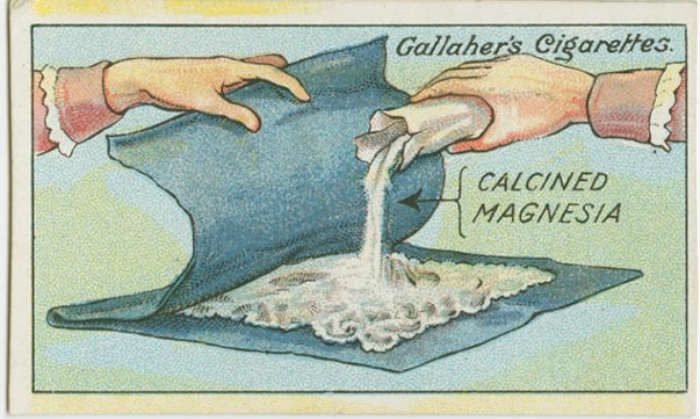
“To clean real lace, lay the lace on a sheet of blue or white tissue paper, and well covered with powder of calcined magnesia. Cover with more paper and place under a weight for a few days. The lace will be found to be quite clean after shaking out the powder, and the most delicate texture remains uninjured.“
16. How to Make a Simple Gate Latch
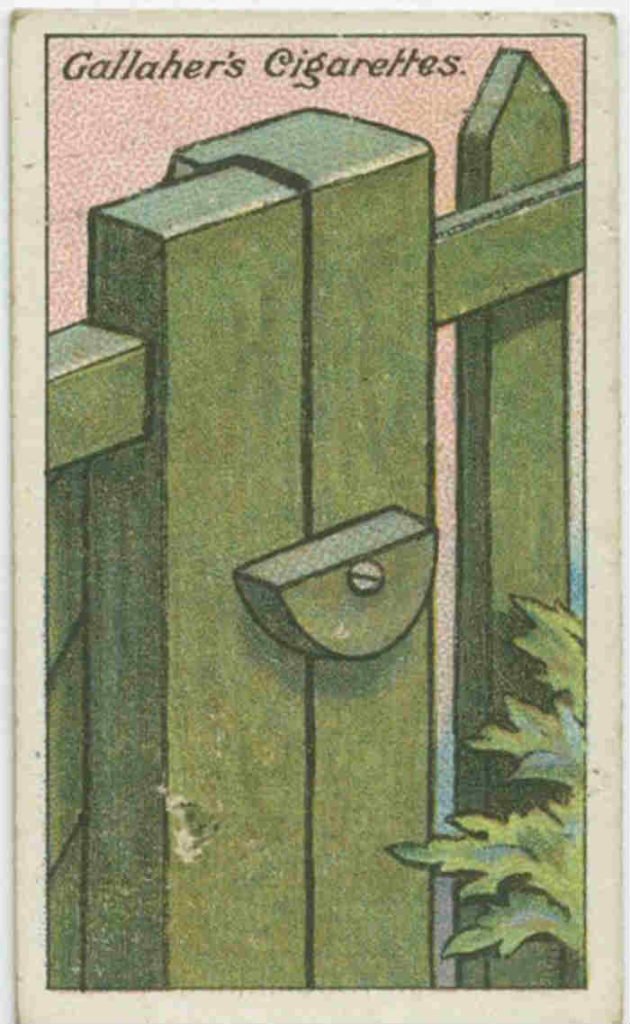
“A loose gate latch of the ordinary shape generally allows gate to swing open. The picture gives shape of a latch which does away with this. When screwed to gate post, this latch will be found to swing in position to secure gate, as the greatest weight of latch is beneath screw pivot.”
17. How to Kill a Tree Stump
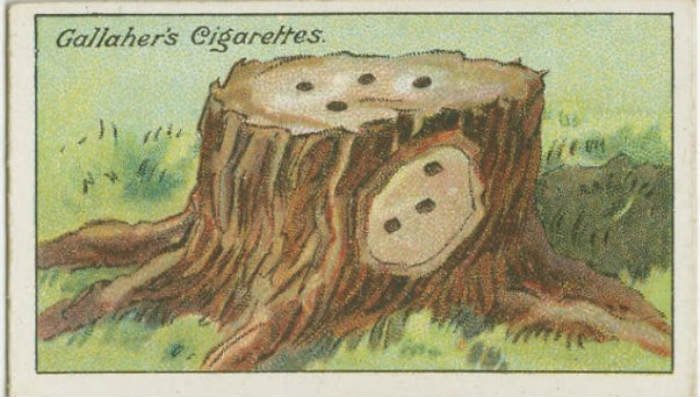
“If a tree stump is not removed from the ground, it often starts sprouting, and strong undergrowth results. To prevent this, holes should be bored in top of stump, and a patch of bark cut from inside and more holes bored there. A mixture of solignum and salt filled into these holes will soak through the tree stump and kill it.”
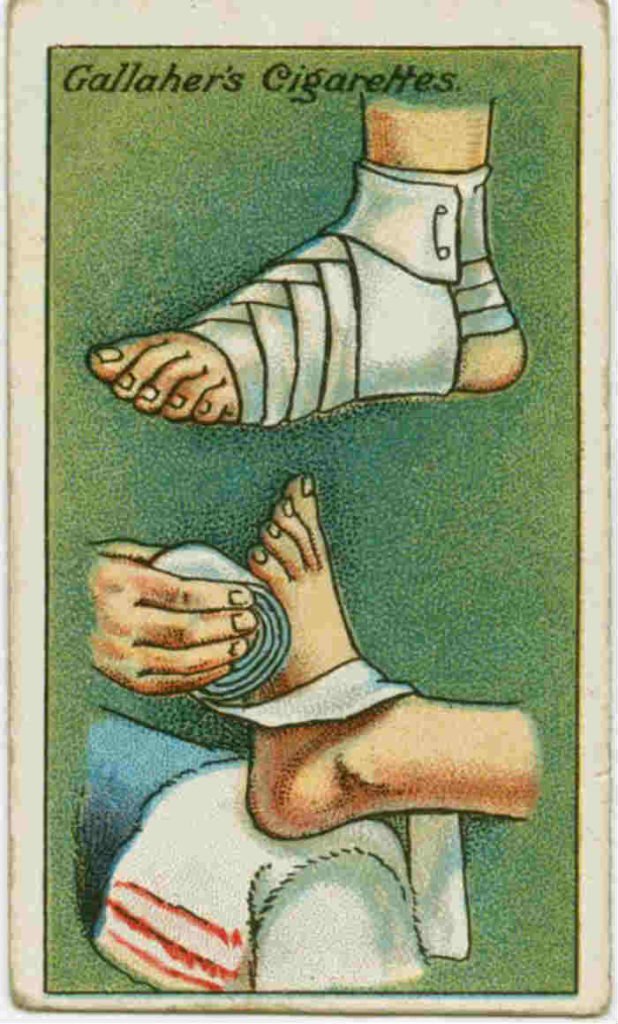
“Rest injured foot on operator’s knee on a clean towel. Commence bandaging in manner shown by the lower diagram, the bandage being bound over and round the back of the foot in a spiral fashion, and eventually affixed by means of a safety pin, just beneath ankle, as shown in the upper illustration.”
19. How to Prevent Colors Running
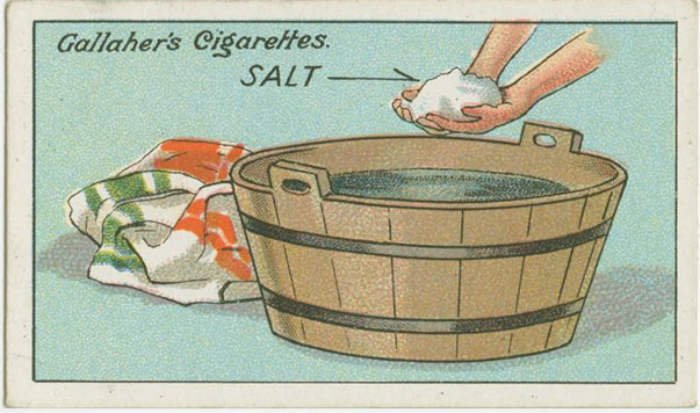
“To prevent colors in household linen from running and staining other linen when washed together, colored things should first be steeped in a solution of walt water. A double handful of salt to a gallon of water is a good proportion, and colored things should be left to soak in this for about twenty-four hours.”
20. How to Save Gas on the Gas Stove
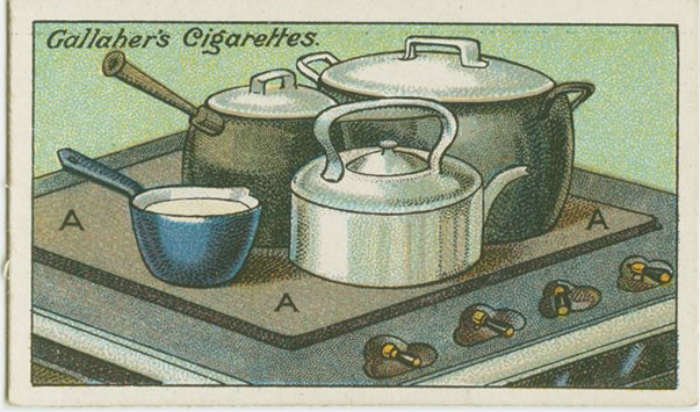
“Get a piece of sheet-iron large enough to cover the top of the stove. You will then find that enough heat can be diffused throughout it to cook a whole dinner. The saucepan needing the greatest heat should be placed directly over the burner, where the sheet-iron is hottest.“
21. How to Make a Good Polish
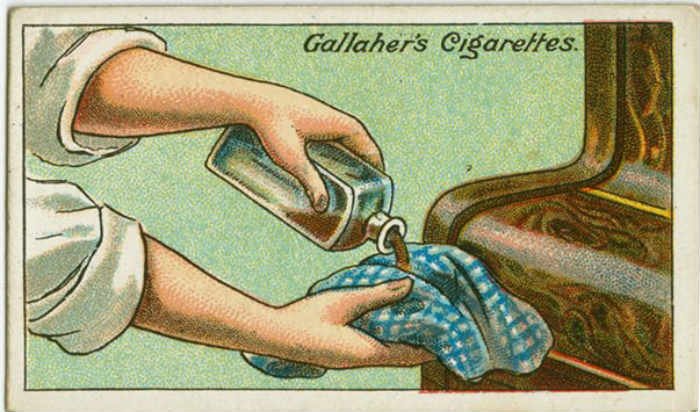
A splendid polish can be made for pictures, mirrors, pianos, floors, etc., by mixing in a bottle of equal parts vinegar and paraffin. Cork and keep for use. A few drops of oil of lavender will give the polish a pleasant smell, and make it doubly effective in keeping away the flies.”
22. How to Mend Broken China
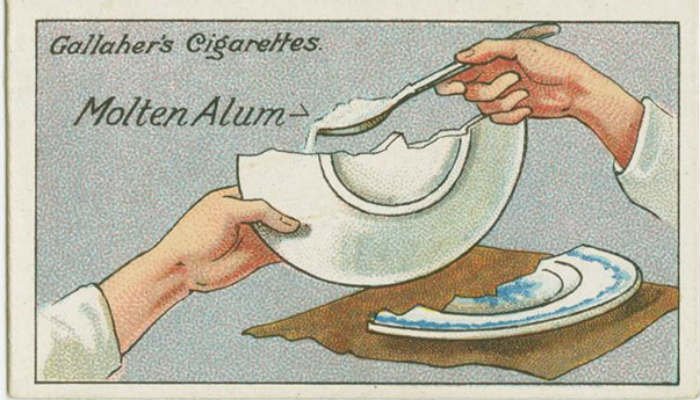
“To mend broken china so that the mended article will stand washing in hot or cold water, some common alum should be heated in an old iron spoon until it melts, and then applied to the broken pieces. The pieces should be retained in position by string and allowed to thoroughly set.“
23. How to Clean New Boots
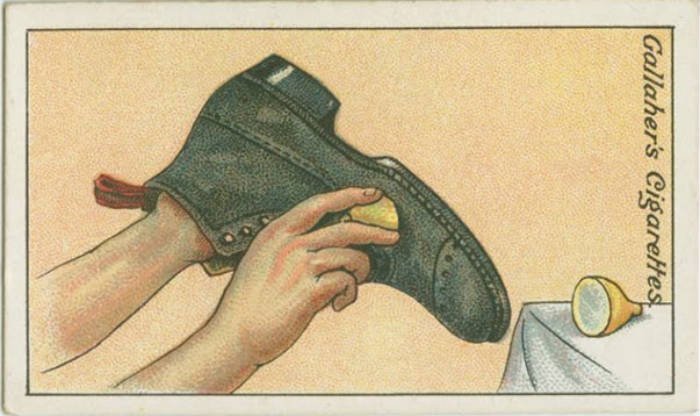
“New boots are sometimes very difficult to polish. A successful method is to rub the boots over with a half a lemon, allow them to dry, after which they will easily polish, although occasionally it may be found necessary to repeat the application of the lemon juice.”
Over the decades, more innovative and efficient methods of doing some of the things listed above have been created. But if you ever find yourself without certain products or ingredients, these life hacks may just come in handy!
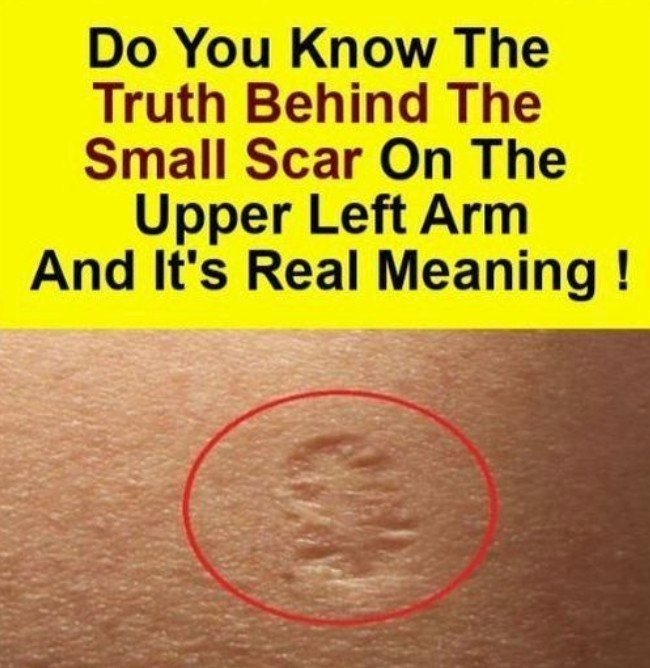




 #“A good way of testing butter is shown in the picture. Rub a little of the suspected compound upon a piece of paper and set the paper alight. If it is pure butter, the odor will be daintly and agreeable, while the presence of Margarine is made known by an unpleasant tallowy smell.”
#“A good way of testing butter is shown in the picture. Rub a little of the suspected compound upon a piece of paper and set the paper alight. If it is pure butter, the odor will be daintly and agreeable, while the presence of Margarine is made known by an unpleasant tallowy smell.”

















Leave a Reply